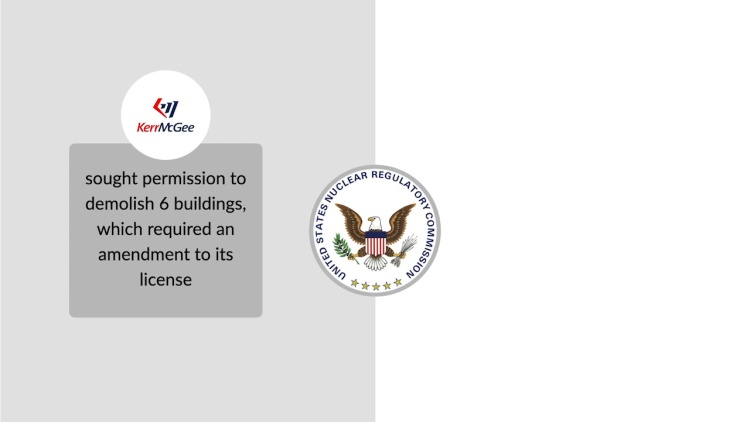City of West Chicago, Illinois v. NRC
United State Court of Appeals for the Seventh Circuit
701 F.2d 632 (1983)

- Written by Eric Cervone, LLM
Facts
When Kerr-McGee Corporation (KM) closed a thorium-production plant in the City of West Chicago (City) (plaintiff) in 1973, the site still contained contaminated material. The Nuclear Regulatory Commission (NRC) (defendant) had issued a source-material license that allowed KM to keep thorium ores at the site. In 1981, the NRC granted KM’s request for an amendment (Amendment No. 3) to the source-material license. Amendment No. 3 permitted KM to demolish buildings and to store contaminated material at the site. The City brought suit against the NRC in district court, arguing that the NRC had approved Amendment No. 3 without providing notice and an opportunity for KM to request a hearing. After the district court ordered the NRC to consider the City’s hearing request, the NRC considered written materials submitted by the City. The NRC issued orders that denied the City’s request for a formal trial-type hearing, addressed the issues raised in the City’s written materials, and approved Amendment No. 3. The City appealed to the United States Court of Appeals for the Seventh Circuit, arguing that the NRC’s procedures violated its own regulations, the Atomic Energy Act (AEA), due process, and the National Environmental Policy Act (NEPA).
Rule of Law
Issue
Holding and Reasoning (Cummings, C.J.)
What to do next…
Here's why 907,000 law students have relied on our case briefs:
- Written by law professors and practitioners, not other law students. 47,100 briefs, keyed to 996 casebooks. Top-notch customer support.
- The right amount of information, includes the facts, issues, rule of law, holding and reasoning, and any concurrences and dissents.
- Access in your classes, works on your mobile and tablet. Massive library of related video lessons and high quality multiple-choice questions.
- Easy to use, uniform format for every case brief. Written in plain English, not in legalese. Our briefs summarize and simplify; they don’t just repeat the court’s language.





